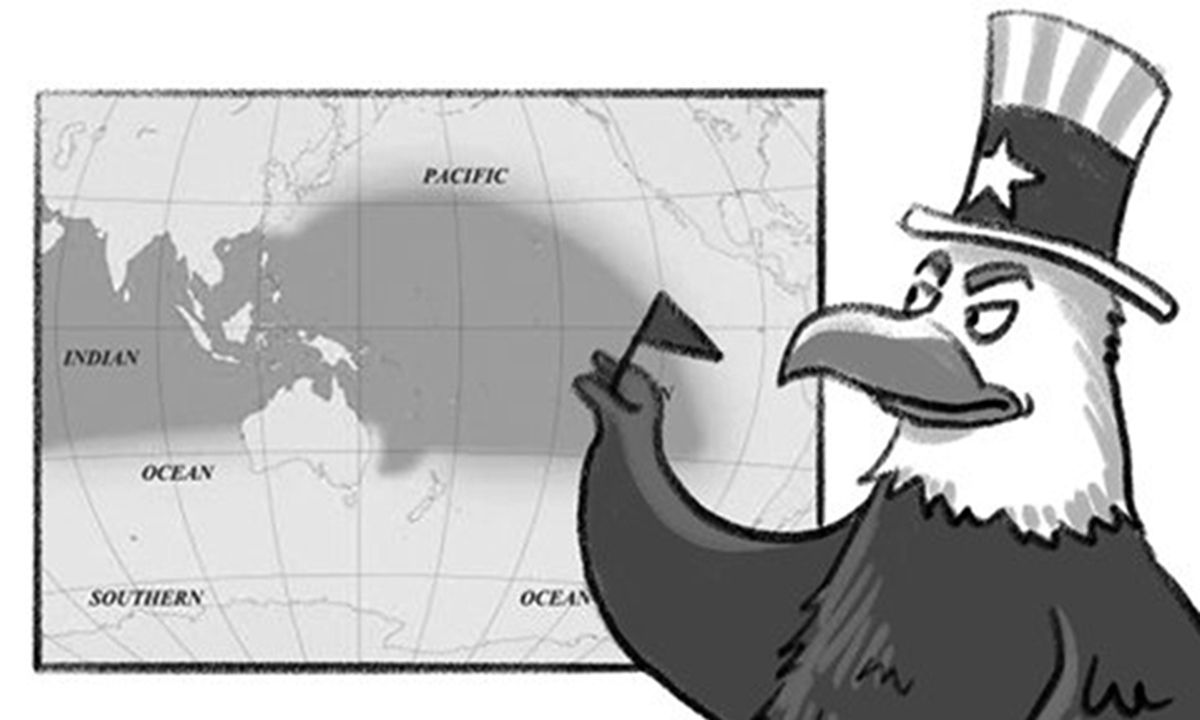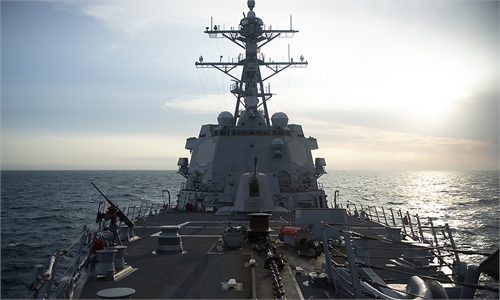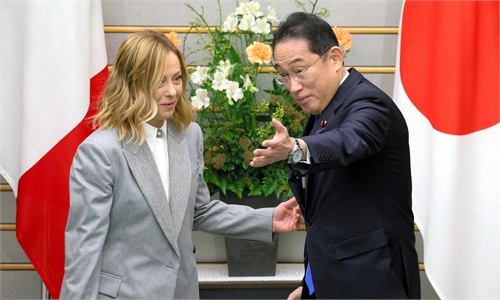US commander touts enhanced military ties with Japan; critics decry US of self-deception

US and the Indo-Pacific Illustration: Liu Rui/GT
Samuel Paparo, the commander of US naval forces in the Pacific, has lauded the strengthened military alliance between the US and Japan as a key achievement of the US "Indo-Pacific strategy," which was unveiled two years ago. However, Chinese observers caution that such boasts and bolstering efforts are fundamentally displays of military prowess, reflecting the US' inclination to wield its military superiority in addressing regional affairs. This approach, they warned, poses a significant threat to regional stability and peace.
According to a report by Defense News on Thursday, Paparo, commander of the US Pacific Fleet, this week said "the integration of our defense industrial bases, the integration of our concepts of operations, the combinations and integrations of our headquarters, and our combining on a common mission, reflects that modernizing of the US-Japan relationship in order to account for the international security environment that we're in today."
Paparo's lauding over the so-called "Indo-Pacific strategy" and claiming it as significant achievements at this time served to salvage the reputation of the US military leadership and the US military's command and control system, which has been in disarray since early 2024 due to Defense Secretary Lloyd Austin's secret hospitalization, and also to score political points for the Biden administration's "Indo-Pacific strategy" in the election year, Lü Xiang, research fellow at the Chinese Academy of Social Sciences, told the Global Times on Sunday.
Despite the strengthened military cooperation between the US and Japan, particularly in the so-called interoperability, clearly, there is a strong element of self-deception with the "Indo-Pacific strategy" implementation, Lü said.
He explained that the Russia-Ukraine conflict has shown that no major power, including the US, can sustain a prolonged war of attrition, while the "Indo-Pacific strategy" continues to drain US capabilities, both economically and in terms of multilateral cooperation including those under the framework of QUAD grouping mechanism and AUKUS.
Paparo, who has been tapped to serve as the next commander of US Indo-Pacific Command, said Japan has multiple open foreign military sales with the US, including one announced last month to buy as many as 400 Tomahawk cruise missiles, per the Defense News report.
He noted Japan is also building weapons for the US, referencing a December 2023 move by Japan to sell the Patriot air defense system to the US to restore dwindling stockpiles here.
The boasting by the US and the strengthening of military cooperation with Japan are essentially a show of force, using military advantage to address regional affairs, which has already led to division and turmoil in Europe, Li Haidong, a professor at the China Foreign Affairs University, told the Global Times on Sunday.
Li warned that this move by the US is aimed at stirring up chaos, division, and conflict in the Asia-Pacific region.
The strategy was released in February 2022 by the Biden administration. And soon after that Japan's December 2022 defense strategy and spending plan called for beefed-up investments in missile defense capabilities and counterstrike capabilities, or the ability to hit the enemy's missile launchers, ordnance stores and other attack infrastructure.
Of particular concern is Japan's leveraging of US efforts to enhance its own military capabilities, including revising its national security strategy, increasing military spending, and even attempting to develop medium-range missile capabilities, Lü warned.
This trend warrants vigilance from China, Russia, and other neighboring countries. If there are any substantive developments, neighboring countries will respond strongly, he said.




